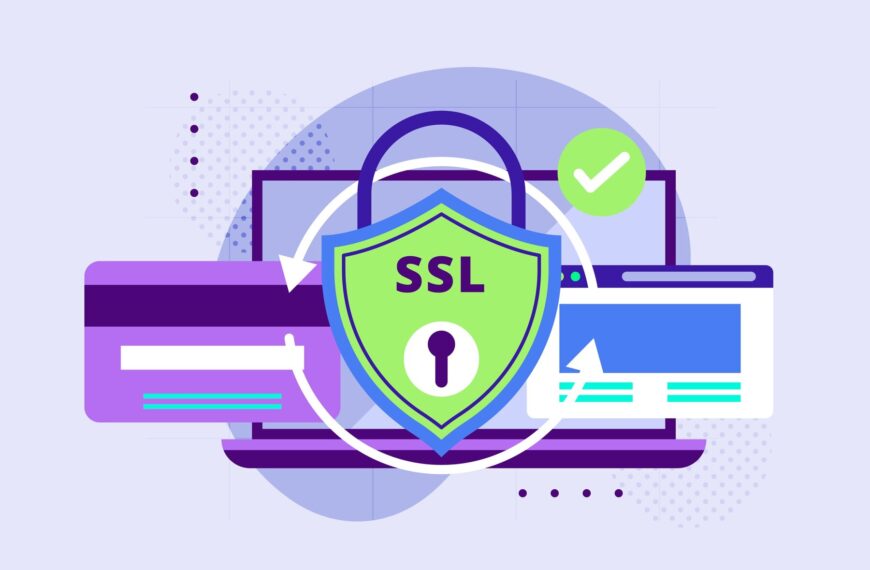Introduction
In today’s fast-paced legal environment, small law firms face unique challenges. They often have limited resources, smaller teams, and tighter budgets compared to larger firms. However, they still need to manage complex cases, meet client expectations, and stay competitive. This is where Software as a Service (SaaS) for legal case management comes into play. SaaS solutions provide small law firms with powerful tools to streamline their operations, improve efficiency, and enhance client service—all without the need for significant upfront investment in IT infrastructure.
This blog post will explore the benefits of using SaaS for legal case management in small firms, discuss key features to look for, and review some of the top SaaS platforms available. We’ll also include tables to help you compare features, pricing, and other critical aspects of these solutions.
The Importance of Legal Case Management for Small Firms
Legal case management involves the organization, storage, and tracking of case-related information, including documents, deadlines, communications, and billing. For small law firms, effective case management is essential for maintaining productivity, ensuring compliance, and delivering high-quality service to clients.
However, traditional methods of case management—such as paper files, spreadsheets, and manual tracking—are not only inefficient but also prone to errors. This is where SaaS-based legal case management systems come in. These cloud-based solutions offer small firms a way to manage their cases more effectively, with features like automated workflows, document management, time tracking, and billing integration.
Benefits of SaaS for Legal Case Management
- Cost-Effective:
- One of the most significant advantages of SaaS for small firms is its cost-effectiveness. Unlike traditional software that requires hefty upfront costs, SaaS solutions operate on a subscription model. This means firms can access the software for a monthly or annual fee, making it easier to budget and scale as needed.
- Accessibility:
- SaaS solutions are cloud-based, meaning they can be accessed from anywhere with an internet connection. This is particularly beneficial for small firms where attorneys may need to work remotely or access case information while in court.
- Scalability:
- As your firm grows, so can your SaaS solution. Most SaaS platforms offer different pricing tiers based on the number of users or features needed, allowing you to scale up (or down) without significant disruption.
- Automatic Updates:
- With SaaS, updates and new features are automatically rolled out by the provider. This ensures that your firm always has access to the latest tools and security enhancements without the need for manual installations.
- Enhanced Security:
- Data security is a top priority for legal firms. SaaS providers typically offer high levels of security, including data encryption, regular backups, and compliance with legal industry standards.
- Improved Collaboration:
- SaaS platforms often include collaboration tools that allow team members to work together more effectively. Features like shared calendars, task assignments, and document sharing ensure that everyone is on the same page.
Key Features to Look for in a SaaS Legal Case Management System
When selecting a SaaS solution for your law firm, it’s important to consider the features that will best support your practice’s needs. Below are some key features to look for:
- Document Management: Secure storage, organization, and retrieval of case-related documents.
- Time Tracking: Automated time tracking for billing and productivity analysis.
- Billing and Invoicing: Integrated billing features that streamline the invoicing process.
- Task Management: Tools to assign and track tasks within the firm.
- Client Communication: Features like email integration, client portals, and secure messaging.
- Calendaring and Scheduling: Automated reminders, court date tracking, and shared calendars.
- Reporting and Analytics: Tools to generate reports on case progress, billing, and other metrics.
Here’s a comparison of key features across different SaaS legal case management platforms:
| Feature | Importance for Small Firms | Example SaaS Platforms |
|---|---|---|
| Document Management | Essential for organizing and securing case files | Clio, MyCase, PracticePanther |
| Time Tracking | Critical for accurate billing and productivity management | Bill4Time, Clio, TimeSolv |
| Billing and Invoicing | Streamlines payment processes and improves cash flow | Zola Suite, CosmoLex, Rocket Matter |
| Task Management | Ensures deadlines are met and tasks are completed on time | PracticePanther, MyCase, Smokeball |
| Client Communication | Facilitates secure and efficient communication with clients | MyCase, Zola Suite, Rocket Matter |
| Calendaring and Scheduling | Helps track court dates and manage deadlines | Clio, MyCase, TimeSolv |
| Reporting and Analytics | Provides insights into firm performance and case outcomes | CosmoLex, Zola Suite, PracticePanther |
Top SaaS Platforms for Legal Case Management in Small Firms
There are several SaaS platforms designed specifically for legal case management. Below, we review some of the top options, highlighting their key features, pricing, and best use cases.
1. Clio
Overview: Clio is one of the most popular legal case management platforms on the market, known for its user-friendly interface and comprehensive feature set. It offers tools for document management, time tracking, billing, and client communication, making it a strong choice for small firms looking for an all-in-one solution.
Key Features:
- Document Management: Easily upload, organize, and search case documents.
- Time Tracking: Track billable hours with a built-in timer and generate invoices automatically.
- Client Portal: Secure client communication and document sharing.
- Integrations: Integrates with popular tools like Google Workspace, Microsoft Office, and QuickBooks.
Pricing:
- Pricing starts at $39 per user per month for the Starter plan, with more advanced features available in higher tiers.
Best For:
- Small firms seeking a comprehensive, easy-to-use platform that scales with their needs.
2. MyCase
Overview: MyCase is designed specifically for small law firms, offering a range of features to streamline case management, client communication, and billing. MyCase emphasizes ease of use, making it ideal for firms without dedicated IT staff.
Key Features:
- Task Management: Assign and track tasks, set deadlines, and monitor progress.
- Billing and Invoicing: Create and send invoices, accept online payments, and track payment status.
- Document Automation: Automate the creation of commonly used documents and forms.
- Client Communication: Built-in client portal for secure messaging and file sharing.
Pricing:
- Starts at $49 per user per month, with a 10% discount available for annual billing.
Best For:
- Small firms that prioritize client communication and streamlined billing.
3. PracticePanther
Overview: PracticePanther is a versatile legal case management platform that offers a robust set of features for small to mid-sized firms. It includes everything from time tracking and billing to task management and reporting.
Key Features:
- Time Tracking: Track time on any device and convert it directly into invoices.
- Document Management: Store, organize, and search documents securely in the cloud.
- Billing and Payments: Automated billing, invoicing, and payment processing.
- Reporting: Generate detailed reports on case performance, billing, and client activity.
Pricing:
- Pricing starts at $49 per user per month, with additional features available in higher tiers.
Best For:
- Small firms looking for a comprehensive platform with advanced reporting capabilities.
4. CosmoLex
Overview: CosmoLex is a cloud-based legal case management and accounting platform that combines practice management with accounting in one system. This makes it particularly appealing for small firms looking to simplify their financial processes.
Key Features:
- Integrated Accounting: Manage trust accounting, billing, and business accounting from a single platform.
- Document Management: Securely store and organize documents with built-in version control.
- Calendar and Tasks: Track deadlines, schedule appointments, and manage tasks with ease.
- Compliance Tracking: Ensure compliance with legal and accounting regulations.
Pricing:
- CosmoLex pricing starts at $89 per user per month, which includes all features—no add-ons required.
Best For:
- Small firms that need integrated legal and accounting software with a focus on compliance.
5. Rocket Matter
Overview: Rocket Matter is another top choice for small firms, offering a cloud-based solution with a strong focus on productivity and efficiency. The platform provides tools for case management, time tracking, billing, and project management.
Key Features:
- Matter Templates: Create templates for recurring case types to save time and standardize processes.
- Billing and Invoicing: Generate invoices quickly and accept online payments.
- Task Management: Use Kanban boards to visualize workflows and track task progress.
- Mobile Access: Access case information, track time, and manage tasks on the go with the Rocket Matter mobile app.
Pricing:
- Pricing starts at $39 per user per month for the Essentials plan.
How to Choose the Right SaaS Solution for Your Firm
Selecting the right SaaS legal case management platform for your small firm requires careful consideration of your specific needs, budget, and practice areas. Here are some key factors to keep in mind:
- Firm Size and Growth Plans:
- Consider the current size of your firm and your growth plans. If you anticipate significant growth, choose a platform that can scale with your business, offering features and pricing plans that accommodate expansion.
- Practice Areas:
- Some SaaS platforms offer specialized features tailored to specific practice areas. For example, a family law firm might prioritize document automation and client communication, while a litigation-focused firm might need robust calendaring and task management.
- Budget:
- Evaluate your budget and consider the total cost of ownership, including subscription fees, training costs, and potential add-ons. Opt for a solution that offers the best value for your firm’s needs without overextending your resources.
- Ease of Use:
- The platform should be user-friendly and require minimal training. A complex system can lead to frustration and reduced productivity, particularly for small firms with limited IT support.
- Integration Capabilities:
- Ensure that the SaaS platform integrates seamlessly with other tools you use, such as email, accounting software, and document storage systems. Integration reduces manual data entry and streamlines your workflow.
- Support and Training:
- Look for a provider that offers comprehensive customer support and training resources. This is especially important during the initial setup phase and as your team adapts to the new system.
| Consideration | Importance | Key Questions to Ask |
|---|---|---|
| Firm Size & Growth Plans | How will this solution support your firm as it grows? | Does the platform offer scalable features and pricing? |
| Practice Areas | Are there specialized features for your practice areas? | Which features align with your specific legal work? |
| Budget | What is the total cost of ownership? | Does the platform offer the best value within your budget? |
| Ease of Use | How user-friendly is the platform? | Will your team be able to adopt the system quickly? |
| Integration Capabilities | Does the platform integrate with existing tools? | Can it connect with your email, accounting, and other systems? |
| Support & Training | What level of customer support is provided? | Are there training resources to help with onboarding? |
The Future of SaaS for Legal Case Management
The adoption of SaaS for legal case management in small firms is expected to continue growing as technology advances and the legal industry becomes increasingly digitized. Here are some trends that are shaping the future of SaaS in legal case management:
- AI and Automation:
- Artificial intelligence (AI) and automation are becoming integral parts of legal SaaS solutions. These technologies can streamline routine tasks such as document review, contract analysis, and legal research, allowing attorneys to focus on higher-value work.
- Data Analytics:
- Data-driven decision-making is gaining traction in the legal field. SaaS platforms are incorporating advanced analytics tools that provide insights into case outcomes, billing trends, and client satisfaction. Small firms can leverage these insights to refine their strategies and improve overall performance.
- Enhanced Security Features:
- As cyber threats evolve, SaaS providers are continually enhancing their security measures. Expect to see more advanced encryption, multi-factor authentication, and compliance with legal data protection standards in future SaaS offerings.
- Mobile-First Solutions:
- With the increasing demand for remote work and mobile access, SaaS platforms are prioritizing mobile-first design. Future solutions will likely offer more robust mobile apps, allowing attorneys to manage cases, communicate with clients, and track time from their smartphones.
- Client-Centric Features:
- Client expectations are rising, and SaaS platforms are responding by adding more client-centric features, such as enhanced client portals, real-time communication tools, and transparent billing practices. These features help small firms deliver a better client experience, leading to higher satisfaction and retention rates.
| Future Trend | Impact on Legal Case Management | Expected Benefits for Small Firms |
|---|---|---|
| AI and Automation | Streamlines routine tasks, improving efficiency | Allows attorneys to focus on high-value legal work |
| Data Analytics | Provides actionable insights into firm performance | Helps small firms make data-driven decisions |
| Enhanced Security | Protects against evolving cyber threats | Ensures compliance with legal data protection standards |
| Mobile-First Solutions | Increases flexibility and accessibility | Enables work from anywhere, improves productivity |
| Client-Centric Features | Enhances client communication and satisfaction | Builds stronger client relationships, improves retention |
Conclusion
SaaS for legal case management offers small firms a powerful, cost-effective solution to manage their cases, improve efficiency, and enhance client service. By choosing the right platform, small firms can streamline their operations, reduce administrative burdens, and focus on what truly matters—delivering exceptional legal services to their clients.
As the legal industry continues to evolve, embracing SaaS solutions will be key to staying competitive. With features like document management, time tracking, billing, and client communication all in one place, small firms can leverage these tools to achieve greater success and growth.
By considering the factors discussed here and staying informed about future trends, your firm can select the best SaaS solution to meet its needs and drive long-term success.








